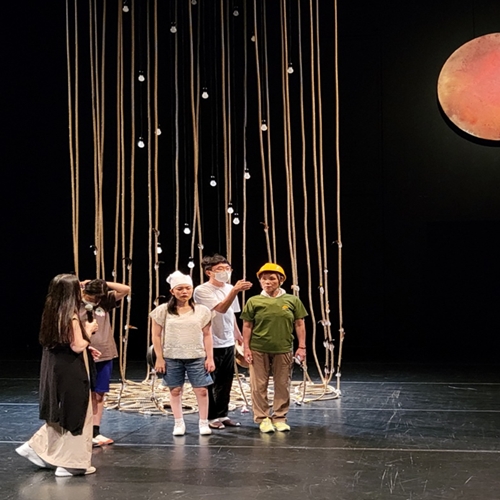
“A
Village,” Joint Performance by School of Drama and Bird Theatre Company Wins
Great Acclaim
On 9 July and 10 July, “A Village,” a
theatrical work co-produced by the School of Drama and the Bird Theatre Company
from Japan came on the stage. The Bird Theatre Company is a theater company and
performance center based in Tottori, Shikano, Japan.
“A Village” is an outcome of three years
of the collaborative project between Korea and Japan started in 2020, which was
a part of the creative play platform project which aimed to support the
graduate and prospective graduate students of the School of Drama. Amid the
COVID-19, the performance was staged in reading performances in Korea and Japan
each while sharing the experience through YouTube live streaming and having
conversations with the audience or holding meetings via Zoom. The first joint
performance presented this time took place after three weeks of collaborative
exercise by the cast and staff in Japan from 19 June.
Lee Yeonju, the representative of The
Call’s Ringing Theater Company in Seoul, wrote the play and Ha Dongki, the
representative of Baeksukwangbu Theater Company, directed the work. Both are
alumni of the School of Drama. Shin Dong-keun and Yoon Jiyeong, the current
students majoring in Acting, appeared in the work. Park Seongwon as a dramaturg
and Joo Miyeong as a set designer, who are both alumni of the Department of
Theatre Studies, participated in the production. Also, four actors from the
Free Theater from Japan, a theater company with disabled actors, took part.
The barrier-free production, eliminating
the border between the disabled and non-disabled, earned the great acclaim of
the audience. The number of users for the caption devices and sign language
interpretation marked the highest in the history of Free Theatre performances.
The local newspapers and media also showed great interest. The event
particularly heightened the expectation for setting a new model of cultural
exchange between a national arts university and a foreign professional
performance organization.